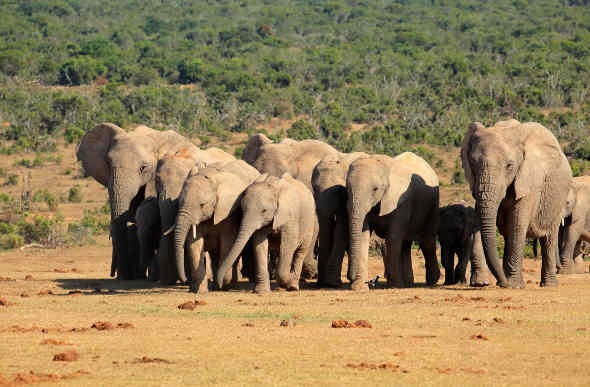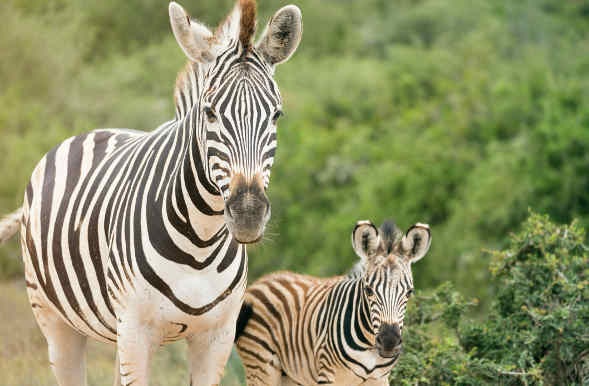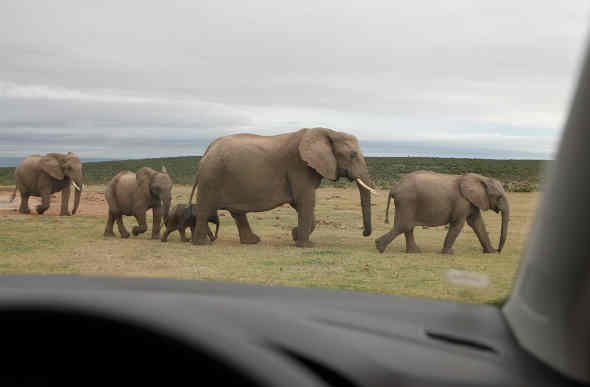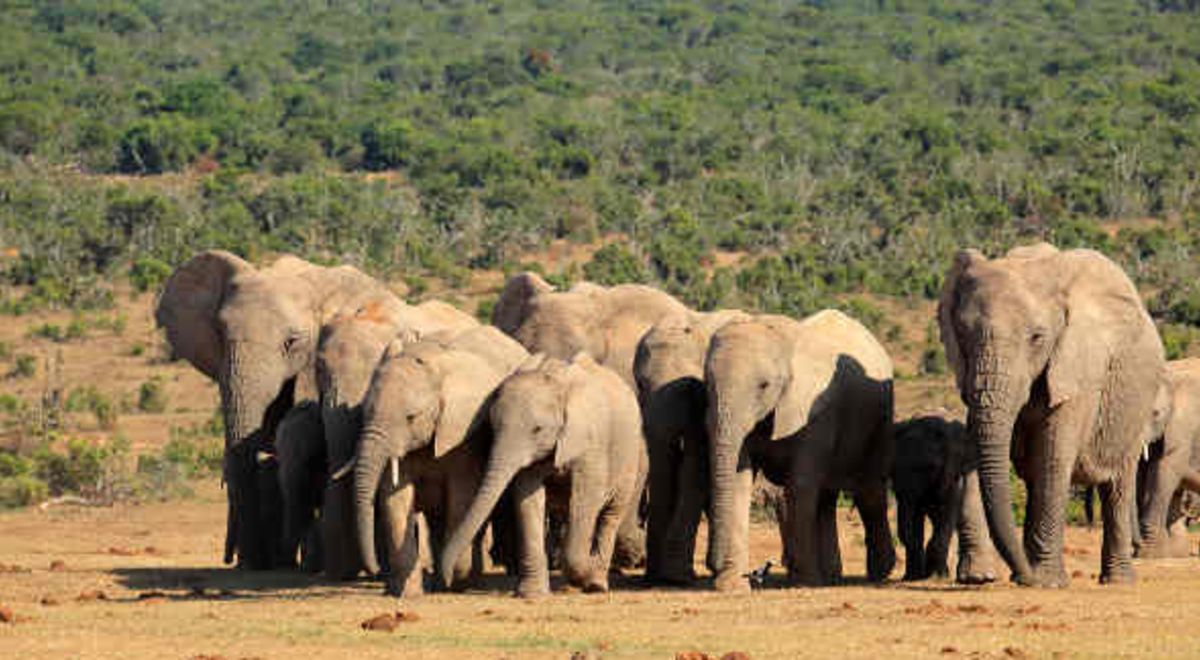
“Got any oranges?” asks a security guard at the park entrance. Truthfully, I tell him I have none and have merely come to eyeball the elephants. But I must look puzzled because he explains with a broad smile: “Oranges are banned in Addo Elephant National Park.”
Only later do I discover why. It turns out elephants are wild about oranges - and any other citrus fruits. With good senses of smell, pachyderms can sniff citrus fragrances from a great distance. What’s more, they find these foods impossible to resist. So, park authorities opted to protect tourists (and their vehicles) in South Africa’s third-largest wildlife park by banning oranges and other citrus fruits.
Mind the elephant dung
This isn’t my only quirky discovery in Addo Elephant National Park. Signs warn me not to disturb elephant dung on park roads. Why? The park is trying to save a rare type of dung beetle from extinction. Signs even announce that dung beetles have right of way.

Most tourists visiting South Africa go to game parks closer to Johannesburg (such as Kruger National Park) or Durban - but Eastern Cape province’s Addo is only 70 kilometres from the car-manufacturing city of Port Elizabeth. My South African Airways domestic flight from Johannesburg takes 95 minutes, followed by an easy drive. Numbers visiting Addo are increasing and accommodation ranges from stylish cottages through mid-market motel-style lodgings to budget accommodation and tents.
A haven for wildlife
Addo was founded in 1931 as a habitat for a local elephant population that dwindled to only 11. The animals have rebounded to around 600 - the world’s highest density of a wild elephant population. Aside from elephant herds in the 1640 square kilometre park, other animals include lions (found within the park’s southern end), sorely endangered black rhinos (but none of the more common white rhinos), buffaloes, a small hippo population and a few leopards.

Park policy is not to introduce animal varieties alien to the immediate area - explaining an absence of cheetahs and giraffes. There are, however, many zebras - and antelope of numerous species, including kudu which features on the menu at the park’s restaurant and is commonly served in South Africa when venison is ordered.
Check out South Africa's cities too
Seasonal Guide to Johannesburgh
5 Free Things to do in Cape Town
I round many a bend to encounter elephants - sometimes groups of 20 or more, including babies, crossing roads. “We stop to let them cross,” explains my guide. “They’re so much bigger than us.” The park recently expanded to embrace a maritime zone - with whale-watching cruises very popular. The offshore section is a breeding ground for great white sharks (occasionally spotted by tourists) and sea birds living on several tiny uninhabited isles.

Find the Big 5
While the park is home to Africa’s so-called Big Five (elephants, lions, rhinos, leopards and buffaloes) it’s impossible not to become aware of a conservation program to protect the threatened flightless dung beetle. These tennis ball size insects burrow into elephant dung, which they push from roads and then inhabit. The beetles have several predators - including meerkats and bat-eared foxes. Then there are humans. Visitors unthinkingly drive rental cars over elephant dung - crushing beetles. That’s why the park is dotted with signs reminding visitors of the beetles’ presence. According to scientists, growing awareness - along with greater elephant numbers - means dung beetle numbers are increasing. That, a ranger tells me, is definitely good news.


